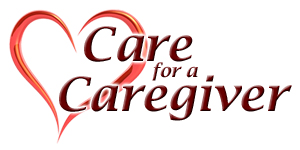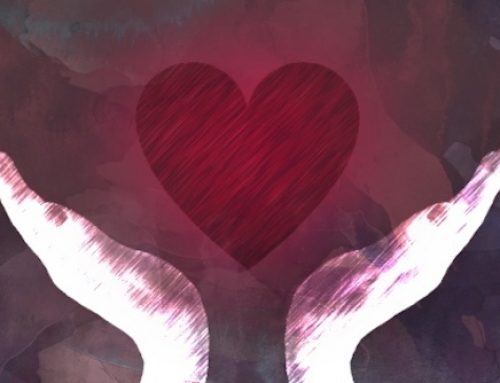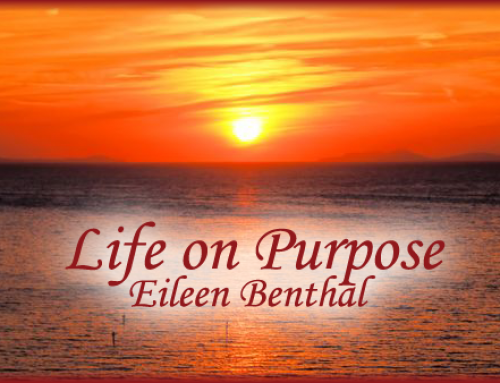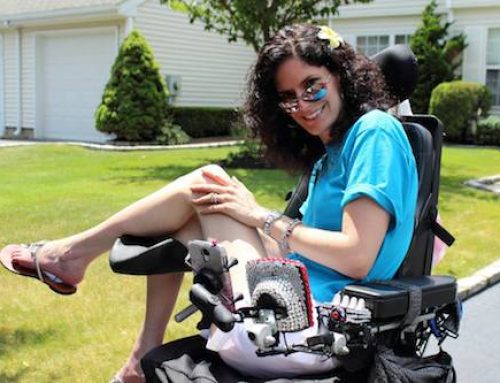In the dark of night, in the prison of addiction, God offers us freedom as we surrender to grace.
![]()
“During the night, the angel of the Lord opened the doors of the prison, led them out and said, “Go, take your place in the temple and tell the people everything about this life” (Acts 5:27).
These words jumped off the page of my Bible as I was reading them the other day. In context, they refer to Peter and the apostles and their miraculous release from the prison they had been thrown into for preaching the gospel. It was an unjust imprisonment prompted by the jealously of another group of people. But what struck me is that every person can relate to the feeling of being imprisoned, if only in our minds. We can be imprisoned by judgmental attitudes, hatred and un-forgiveness. When we are unwilling to love and forgive others, we are hold ourselves and others captive.
By far the most prevalent and pervasive form of imprisonment is addiction. Contrary to what many faith-filled people would have others believe, none of us are immune to the lure, cycles and wounds of addiction.
Like many of us, I grew up in a family which struggled with an addiction to alcohol. Some of my earliest memories were weekends at the Knights of Columbus hall. The hall was a fun gathering place of families, many of whom who also attended the same church. But a big part of the social life surrounded the bar and the television, where mostly men gathered to watch seasonal sports and drink. The kids would play games in the surrounding rooms and enjoy soda and chips, and whatever buffet dinners the moms would prepare in the kitchen behind the bar. There were many joyous occasions celebrated there, including wedding receptions and surprise parties. However, in later years, I came to understand that social gatherings around a bar can also present a challenge to those who struggled with an addiction to alcohol. My father was one of those people.
My dad was a beautiful, faith-filled man who also struggled with an addiction to alcohol. I have many wonderful memories of growing up in Connecticut, taking walks through the woods, and rides throughout New England to visit the fall foliage.
But I also remember long nights as a young child waiting for my Dad to come home from the bar. The same place serving families at weekend events became a daily habit for some of the men that stressed their lives and endangered their personal commitment to their families. There were nights that I lay awake in my bed waiting to hear the front door open so I could join the slumber that enveloped our house. I witnessed my mom’s anxiety as she waited for Dad to come home. Those nights, seemingly endless to a little girl waiting for her daddy, formed a foundation of fear of abandonment that I struggle with to this day. It fostered a fear of darkness and a feeling of lacking protection that became a struggle for me into adulthood. It was only after experiencing the protection and embrace of my husband at night, that I could let go of some of these fears.
As in all families that struggle with addiction, the pervasive attitudes of guilt, shame and unworthiness crept into the happiness of my childhood. The confusing messages of knowing there was something wrong but being told that we were not to tell others about dad’s struggle taught me not to trust my instincts.
A number of years ago, while my husband was studying for his Master’s degree at Fordham, he brought home his class reading and among them was an excellent book by a Christian Psychiatrist, Dr Gerald May. The name of the book was “Addiction and Grace; Love and Spirituality in the Healing of Addictions” (Harper Collins, 1988). Being a stay at home mom, starving for academic study I devoured the book cover to cover. Dr May’s writing and research challenged my preconceived notion of addictions as personal weakness to include myself among those who experienced addictions. It allowed me to begin a process of healing with my Dad through self-examination which inevitably led to the culmination of our reconciliation as I prayed him into heaven in the final hours of his life.
Dr May writes; “I am not being flippant when I say that all of us suffer from addiction. Nor am I reducing the meaning of addiction. I mean in all truth that the psychological, neurological and spiritual dynamics of full-fledged addiction are actively at work in every human being. The same processes that are responsible for addiction to alcohol and narcotics are also responsible for addiction to ideas, work, relationships, power, moods, fantasies and an endless variety of other things. We are all addicts in every sense of the word. Moreover, our addictions are our own worst enemies. They enslave us with chains that are our own making and yet, paradoxically, are virtually beyond our control. Addiction makes idolaters of us all because it forces us to worship these objects of attachment, thereby preventing us from truly, freely loving God and one another. Addiction breeds willfulness in us and yet again, paradoxically, it erodes our free will and eats away at our dignity. Addiction is…the enemy of human freedom, the antipathy of love. Yet…our addictions can lead us to a deep appreciation of grace. Addiction brings us to our knees (p.4).
I recently decided to reread this book again because life has a way of granting us a new perspective. While some of the addictions I struggled with disappeared with habit changes, maturity and faith, others took their place. Some addictions are chosen; like my decidedly strong preference for chocolate. I have learned how to control emotional eating by making sure my brain is balanced with good nutrition, sleep, and prayer. But there are still times I just decide that chocolate is the answer to all life’s dilemmas. Other addictions catch me off guard; a need for affirmation and approval can rule my thoughts and emotions until I consciously dismiss it through positive thinking and prayer. While I never considered myself a perfectionist, I have come to realize that some struggles with procrastination are really rooted in a compulsion to avoid tasks which I consider myself unable to do perfectly.
Where do we find this grace in addiction that Dr May writes about in his book? Any person who has embraced a 12 step program for recovery can easily identify the grace that accompanies the addiction. There is grace in the struggle; even when that struggle is self -imposed choices of addictive substances like drugs and alcohol. As any recovering addict will tell you, there came a moment of truth that surely some would call grace, that forced the realization of that first step; admitting that one is powerless. The twelve step program and all recovery step programs begin with this basic first step of realizing we cannot control the addictions and thus require assistance of a Higher Power to infuse grace to rise above the compulsion.
I witnessed this grace first hand in my dad’s struggle with alcoholism. The seduction of alcohol and late nights at the bar would not amend his commitment to daily Mass. He was out every morning to get to the 7 a.m. Mass. My Dad frequently took us on what he called “mystery rides” where he took us to farms and events that always ended with ice cream. My favorite mystery ride was the ones we would take to an old monastery in Lyme, Connecticut. The little chapel, nestled in the woods was home to an order of cloistered Dominican nuns. After one Mass on Sundays, the chapel would be enveloped in silent prayer and adoration, the silence only broken by the movement of nuns on the other side of the altar. It was there that I learned the art of contemplation as I witnessed my Dad’s deep surrender and peered through the altar rails at the nuns who dedicated their lives to constant prayer.
This childhood memory prompted me to spend my 21st birthday with the nuns in 24 hours of silent, contemplative prayer. To this day, I spend most of my birthdays as a day of prayer and reflection, a tradition inspired by my father, who found grace in his addiction.
It was truly amazing grace that prompted my father and my mother to seek a recovery program. While a family discussion of alcoholism never did happen around our large farm styled dinner table, the changes that were made in that recovery were real, hopeful and evident. A large copy of the Serenity Prayer hung on a central place on the kitchen wall as a reminder to this grace of recovery that now enveloped our lives.
Both in my Dad’s struggle with alcoholism and his recovery, I witnessed the grace in addiction. As the years go on, I am also able to identify the grace that was made available to me as the child caught in the whirlwind of addiction. My dad witnessed to me the grace of persistent faith that leads one from darkness to light, from addiction to freedom. Even in my childhood confusion, I found solace and comfort in prayer which helped build a foundation in faith.
There is also grace for the co-dependent person; the one who supports those who are caught in the fray. If all of us struggle with addictions, then truly there are persons in our lives who develop their own strategies to cope or control the addictions that consume us. For the co-dependent, there is grace in learning to care oneself first and set boundaries that protect from worry and obsessions over the addict’s illness.
Sometimes, as in any illness, the disease of addiction consumes a loved one and we are left with broken lives, hearts and maybe even the loss of a loved one. Where is God then and where is grace? I believe that God is in the grace-filled recovery of those left behind and in the hope of the hopeless beyond the grave.
Like the apostles in Acts chapter 5, the angel of the Lord comes to us in the dark of night. In the dark of night, in the prison of addiction, God offers us freedom as we surrender to grace. I pray that the angel of the Lord grants us all a miraculous release from the addictions and compulsions present in every human heart. Then we can take our place to share with others the grace we found during that dark night as the doors or our prisons were opened.
Serenity Prayer
God grant me the serenity
to accept the things I cannot change;
courage to change the things I can;
and wisdom to know the difference.
Living one day at a time;
Enjoying one moment at a time;
Accepting hardships as the pathway to peace;
Taking, as He did, this sinful world
as it is, not as I would have it;
Trusting that He will make all things right
if I surrender to His Will;
That I may be reasonably happy in this life
and supremely happy with Him
forever in the next.
Amen.
–Reinhold Niebuhr
![]()

Eileen Benthal has a B.A. in theology from Franciscan University of Steubenville. She is a writer, speaker and wellness coach at 40DaysToFocus.com and NOFO Wellness Center. She works with clients locally and around the U.S. who are excited about balancing their health in body, mind and spirit.
Eileen and her husband Steve live in Jamesport and have four young adult children. Their youngest, 16-year-old Johanna, is a teenager with special needs. Eileen can be reached at eileenbenthal@gmail.com andfacebook.com/40DaysToFocus.






Leave A Comment